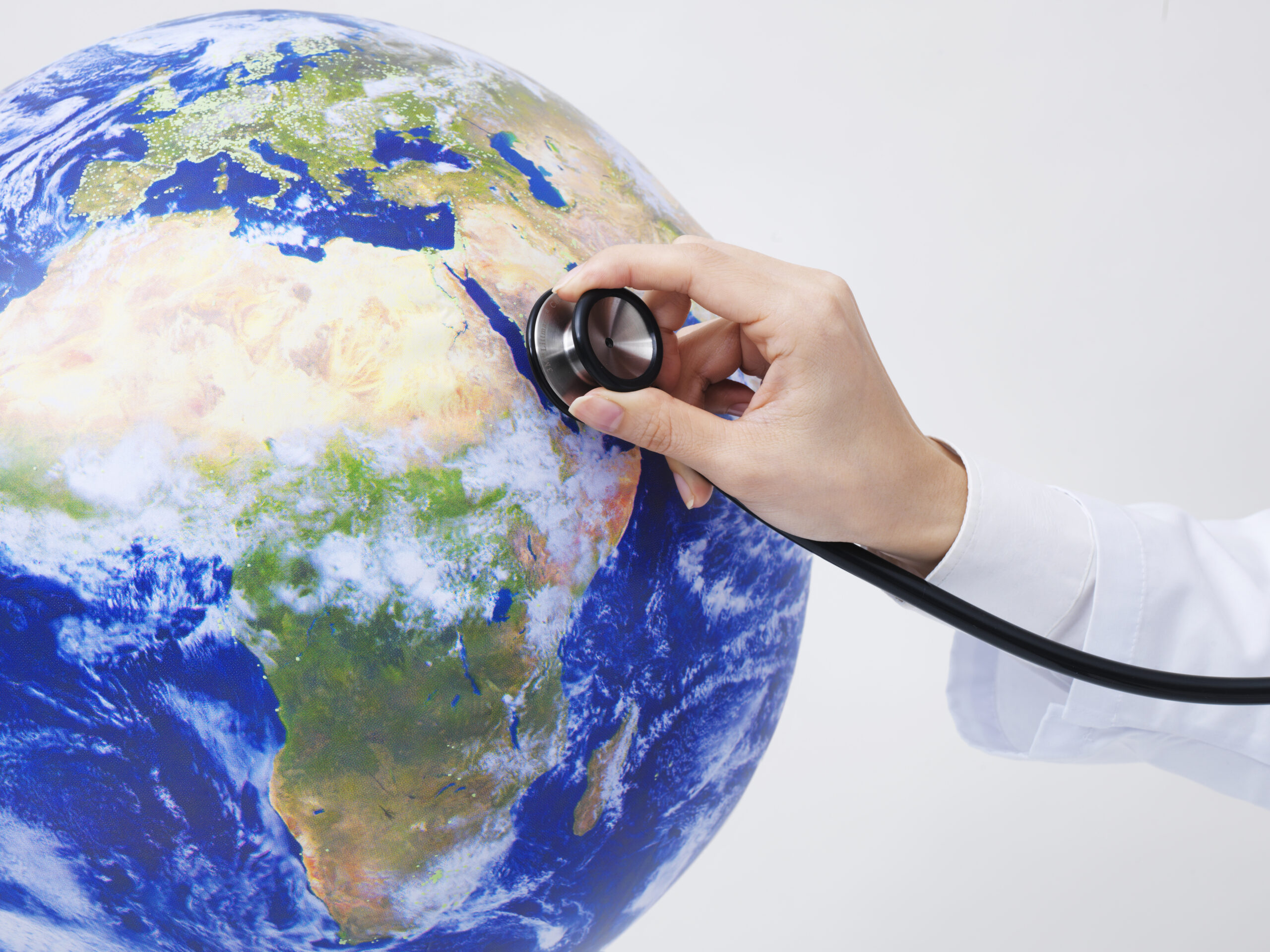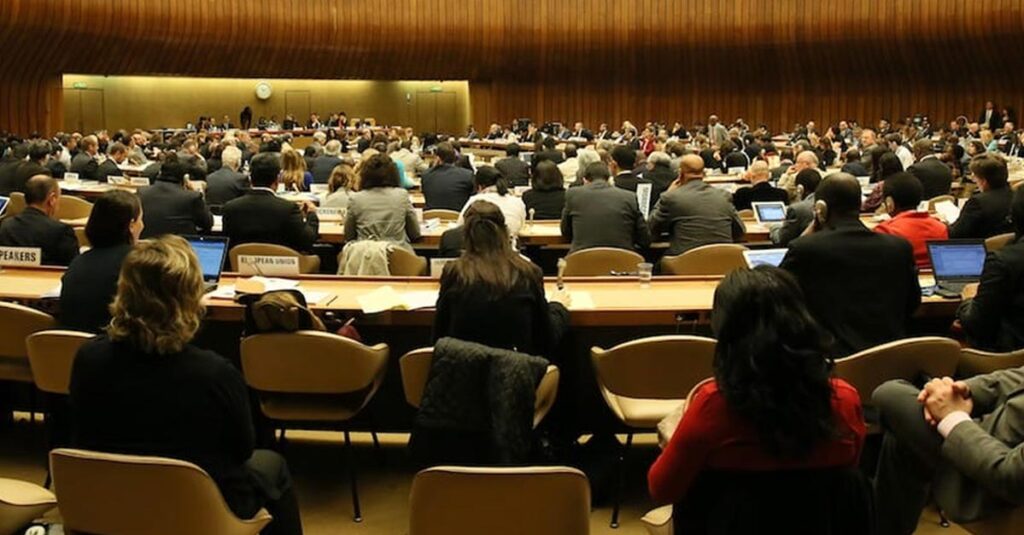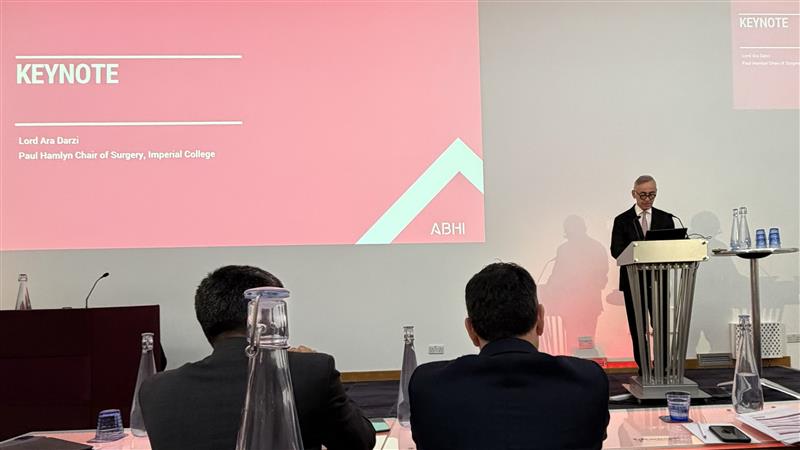Earlier this week, Portland’s global health team joined thousands of global experts across science, business, politics, civil society and international organizations at the 2024 World Health Summit in Berlin.
Under the theme of “Building Trust for a Healthier World,” sessions explored the interconnected health challenges shared by countries – from infectious diseases and climate-driven crises to conflict-induced disruptions and the ever-present threat of pandemics and growing antimicrobial resistance.
Such global challenges require global solutions, with ideas emerging in relation to innovation, sustainable financing pathways and collaborative partnerships. Here are some of our team’s key takeaways on what needs to happen to advance global health goals.
Trust in Innovation
In his address, Gates Foundation Chair Bill Gates noted that “innovation is on our side” calling out advances such as mRNA technology, bi-annual injectables to prevent against HIV infection and the potential of maternal vaccination against respiratory syncytial virus (RSV) to help protect infants from severe RSV disease.
The Alliance for Regenerative Medicines referenced the “tsunami of gene therapies” currently in stage 3 clinical trials, noting we can expect these revolutionary and potentially transformational medicines to be available within the next 2-3 years.
The use of artificial intelligence in healthcare was on the agenda too, with the potential to bring unprecedented changes. In the context of an aging population and rising chronic diseases, the urgency to adopt AI-powered tools lies in its potential to improve patient outcomes, enhance diagnostic accuracy and address health system inefficiencies.
However, we cannot afford to become complacent. While the innovation pipeline has never been better, to harness the full potential of new technologies and strengthen health system resilience, widespread trust in science and increased investment will be crucial for adoption and access.
Flexible Financing for Global Health Solutions
The need for greater – and more flexible – financing was a constant call to action. This year, the Summit’s signature event focused on the World Health Organisation (WHO)’s Investment Round, a new approach to mobilize resources for WHO’s Fourteenth General Programme of Work (GPW14) that aims to prevent 40 million avoidable deaths caused by diseases over the next 4 years (2025-2028).
Encouragingly, the investment round helped to secure $1 billion of predictable, flexible and resilient funding for WHO’s strategy.
The importance of WHO as a coordinating global health body was echoed by donor governments, private sector organizations and philanthropists, who called on others to step up and give generously. Federal Chancellor Olaf Scholz stated, “The WHO’s work benefits us all. What it needs for this work is sustainable financing that gives it the certainty to plan ahead and the flexibility to react.”
In a challenging fiscal environment, it was encouraging to see this bold commitment to the WHO, and with upcoming replenishments for organizations such as Gavi and the Global Fund to Fight AIDS, Tuberculosis and Malaria, we hope that donors heard the compelling case as to why global health investment is not only a moral imperative, but one of the smartest investments you can make.
The Power of Partnerships
In his opening remarks Sunday evening, WHO Director-General Dr Tedros Adhanom Ghebreyesus said that “everything we do depends on the trust of the communities we serve, the partners with whom we work, and the Member States who set the global health agenda and entrust us with the resources to deliver it.”
This need for strong partnerships, that bring cross-sector and cross-national expertise together to put health at the center of global challenges, was another theme that emerged across sessions. At the heart of discussions was the recognition for the complementary capacity of health interventions – for instance, co-provision of vaccines and food supplement can help to stop deadly cycles of malnutrition and infection – and calls for better platforms to collaborate and integrate health considerations into polices across climate, agriculture, gender and development.
Across the Summit, we heard from key actors, from the Wellcome Trust and Rockefeller Foundation to UNICEF and UNFPA, that we are only strong when we work together, and calls for more common spaces like the G7/G20, that facilitate alignment between public and private sectors on global health solutions. Furthermore, youth must also take a center stage, including in digital health transformation, helping to bridge the generational gap and drive innovative processes forward.
Portland is proud to partner with key players across the global health space. From multilaterals to private sector innovators, we are privileged to work and learn from the world leaders helping the global community live longer, healthier lives. Together, we are ready to navigate the complex landscape and ensure that pressing issues – like those discussed in Berlin – remain high on the agendas of policymakers and multilaterals worldwide.






